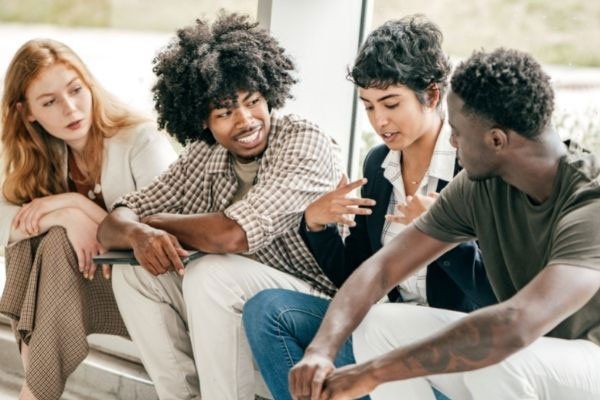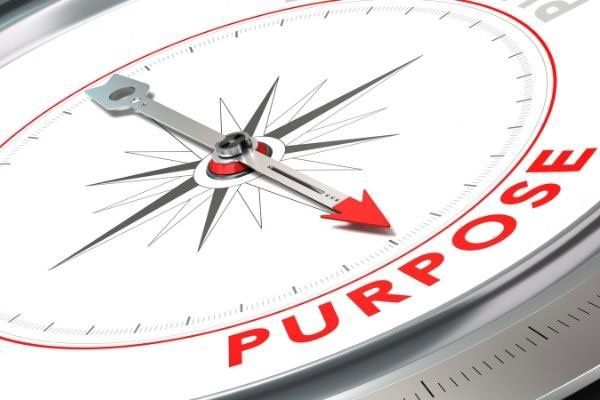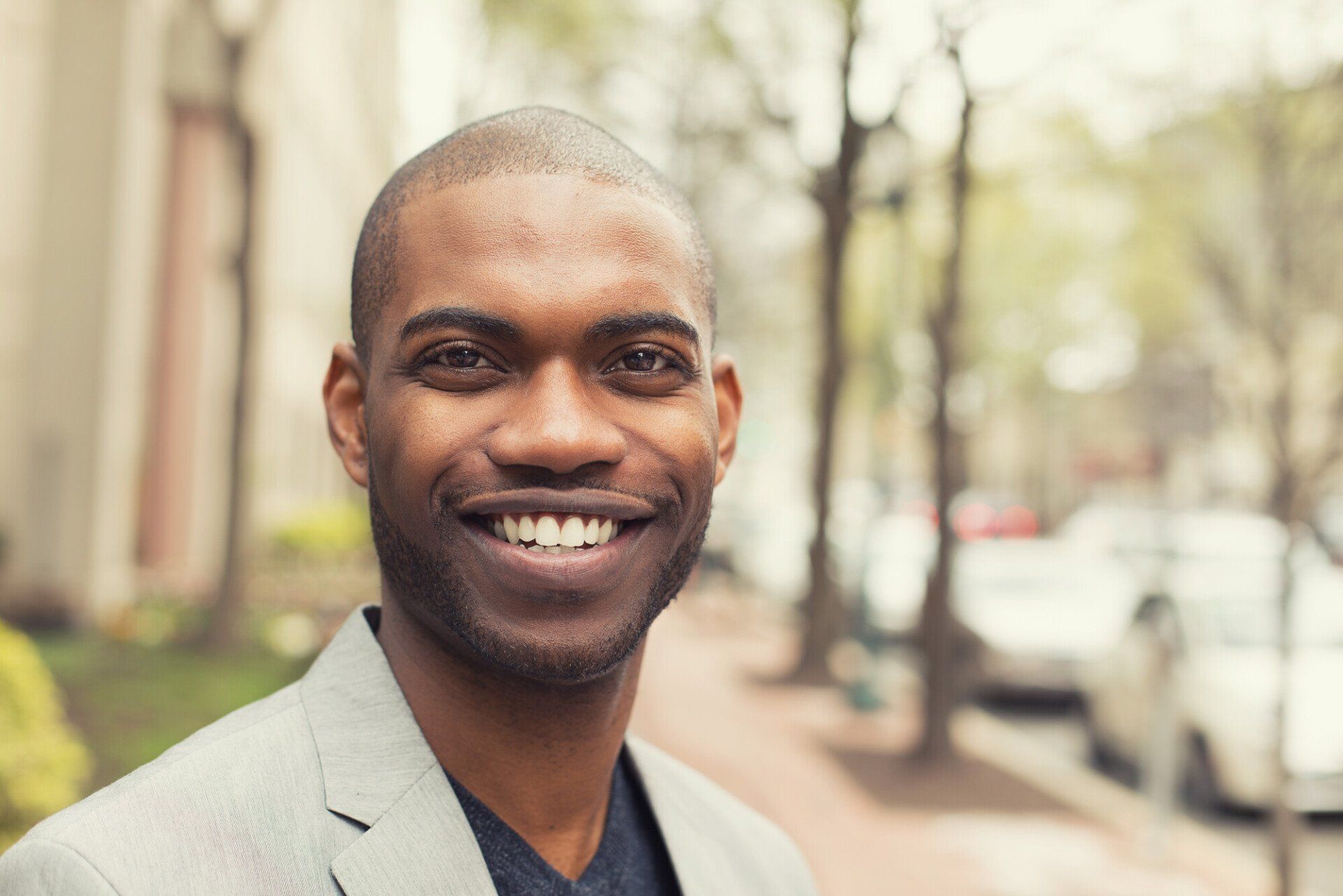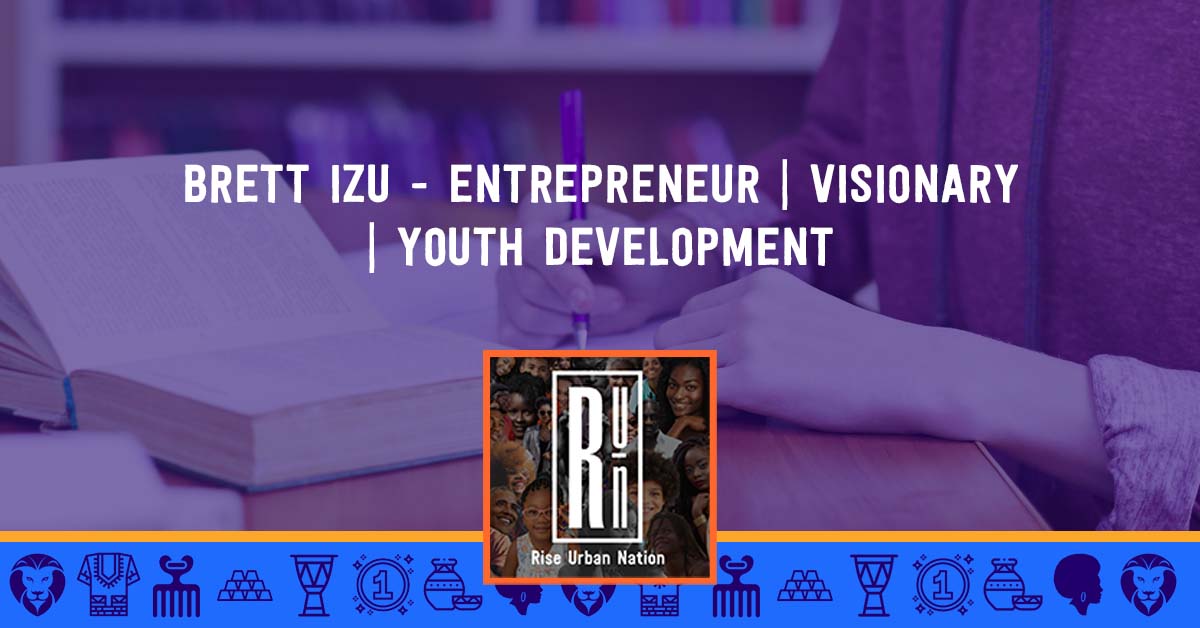Robert H. Johnson, Jr. - Diversity & Inclusion Strategist | Coach | Speaker
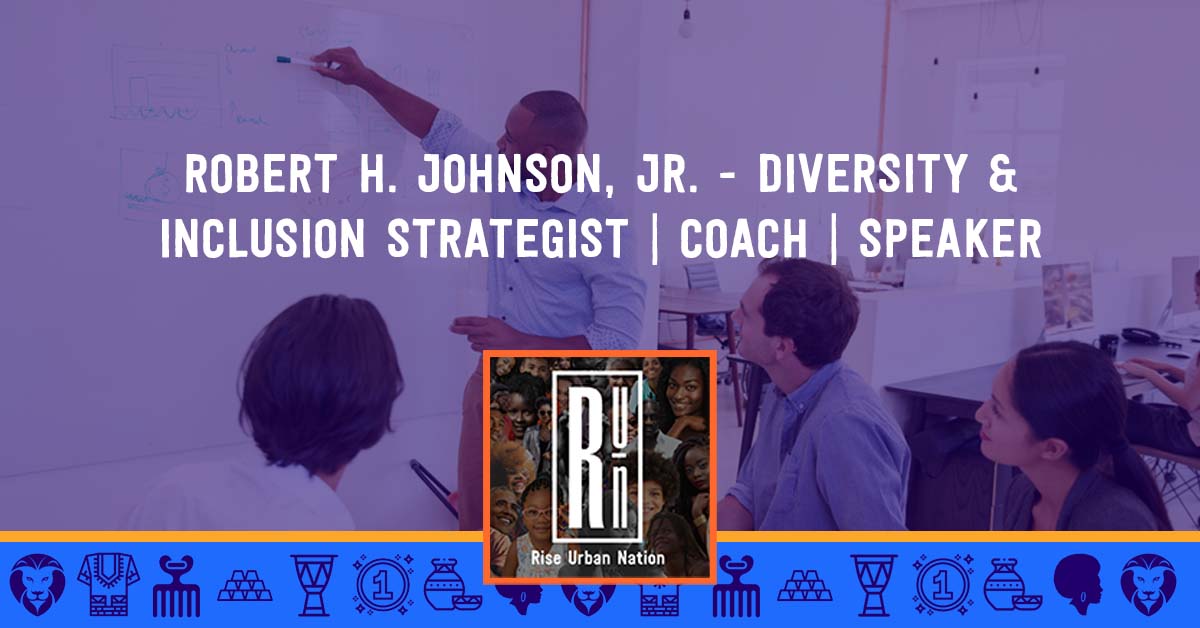
Business experiences can vary from person to person, but great leadership can help direct those experiences into one cohesive goal. In this episode, Robert H. Johnson, Jr., the founder of RHJ Consulting Group, talks to our host, Taryell Simmons, about how he transformed businesses with the help of diversity and inclusion strategies. Robert is a proven transformational and motivational problem solver, consultant, coach and speaker with over two decades of experience leading business and culture transformation for major brands. His practice specializes in helping organizations and individuals design practical yet transformative diversity & inclusion, employee resource group, leadership and business strategies. Join us as Robert talks about his struggles as a Black male in the business world and how managed to climb up the corporate ladder.
We are currently surveying our listeners (or viewers) to learn more about you. Please take a few minutes and visit our website and click on the 'Listener Survey' link found on the home page. Thank you.
---
Listen to the podcast here:
Robert H. Johnson, Jr. - Diversity & Inclusion Strategist | Coach | Speaker
When I first met Mr. Robert H. Johnson Jr., I happened to be going to the Black Central Chamber of Congress in San Diego in an event. Do you know how when somebody speaks and it speaks to your soul and it's on point with your journey in the world? That's how it was for me when I heard this brother. I had to ask a couple of questions that helped us transcend the audience into another wave level of thinking about what success is and what success looks like for each individual, especially in our Black community.
As he was communicating with them, he had this hoodie that he wears called the Corporate Dropout. I remember when he was telling a story about dropping out of the corporate rat race and what life looked like for him and what he's been able to build. Also, the inspiration that he received being raised by a single mother and wanting to uplift Black women was profound. It was everything that I was on par with and I wanted to make strides in the next level of my career.
Robert is an amazing, all-around person. He's a diversity inclusion strategist, a coach, a speaker. He's a proven transformational and motivational problem solver, consulting coach, and speaker. He has over two decades of experience leading business and culture transformation for major brands from Owens Corning, Sam's Club, Bank of America, Capital One Bank.
If you've ever been in those environments, especially at the time he graduated, which was around the ‘90s, and navigating that space and then climbing up the corporate ladder, which is a majority of White space as a Black male or for any Black person, that is not an easy feat. He's been able to do it. He's a native Floridian. He's a graduate of the Florida Memorial University, where he earned a Bachelor's Degree in Science Business Administration. In 2018, he completed a certificate in a leadership program at Southern Methodist University.
In 2007, he decided to jump out and start his RHJ Consulting Group. He does a lot of similar things that I do with helping organizations design practically transformative diversity, inclusion, employee resource groups, leadership, and business strategies. When we aligned, we were speaking each other's language. You'll learn more about that in the episode. Without further ado, ladies and gentlemen, here is Robert H. Johnson Jr.
---
As human beings, we typically don't change and our body is wired that way, our brain is wired that way. Fight or flight. Until we experience some pain or some uncontrollable occurrence in our life, we will not change a pattern. Changing a pattern is a conscious decision because the alternative is no longer variable, Particularly when it comes to bias, racism, sexism, xenophobia, etc. You will not change your behavior until you see internally what you're projecting and how that is returning to you.
It’s like, “If I'm doing something good and it's been working, I'm going to keep doing that. If in my social circles, bias and racism are the norms, until I change my social circle, I'm not going to believe in a new norm.” It’s the same thing with predominantly White organizations in the senior leadership levels, which is the majority of most Fortune 500 companies, big organizations, and small.
Until they recognized that we had limited our potential by only recruiting and promoting people who look like us, there was a hit for the wallet. In many cases, a lawsuit and an ethics complaint that is consequential, businesses will not change their pattern because they believe, “We have core values and we live our core values.” Not everyone bought in the company for the core value. That’s the work that we're doing.
We have been doing the work in my organization for over nine years and it's been mostly training. Now they've got to this point when George Floyd hit where all of the people of color were talking about it, “I don't want any training anymore. I want to see some action. This whole makeup of leadership that's all-White up here, we need some melanin up in there with these new policies, with these procedures. Enough of this training. It's all about belonging, togetherness, and change. I want to see some change.” Some of the less woke people were like, “We did all this. What do you mean there's no change?”
Training does not always equate to change. Training is an initiative, not necessarily action. Here's my three Es. I may have mentioned this in one of our previous conversations. In order to change, grow, be promoted, and build something different, you have to have an education. I'm not just talking about formal education. I'm saying that whatever the thing is, you have to learn it, study it, and get some exposure to the new thing.
You then have experience. I have to apply what I've learned. Give me opportunities to apply what I've learned. Thirdly, exposure. Give me the opportunity then to be exposed to the right people to the organization to demonstrate I have not only learned something new, but I know how to apply it and I'm applying it in such a way that it is delivering the change, the organizational change, the individual change.
The funny thing is when I first met you, I was multitasking. I was joining the call because I was like, “I've been busy lately with setting up DNI.” Keep in mind, 17,000 employees, the whole county, there's a whole bunch of DNI initiatives, and I'm supposed to be the core center that helps executive leadership and everything and infuse it through the entire county.
One of the things I was working on was recruiting and connecting with the Black or Brown community. I was like, “I need to get on this call. Hopefully, I could connect with somebody.” You start rebuilding a relationship. The last thing is you get on and you start talking about stuff. I was like, “This brother is special.” I’m like, “He’s talking my language right here. I know this journey. I've been through this journey before.”
You know your tribe. Thousands of tribes around the world each spoke a unique dialect or even the same language but a unique dialect of that language. That's the thing we're in pursuit of in life. It's finding the people who speak the same language but the dialect in which I speak it. When you see or hear that voice, you're drawn to it. You get closer and closer to it because I felt we were a tribe. These are my kinfolk. There are my tribesmen.
For some of the people, I was like, “Some of the stuff he's saying is going way over their heads.” They’re not catching these nuggets right here. I'm going to need him to repeat some of this. Me and him could engage in the dialect to allow them to see the greatness in themselves and pick these nuggets that they’re missing a little bit.”
I was like, “You wanted to host the call.” You began to facilitate or act as a conduit translating my message through you. Even in your work, with 17,000 people, you are the conduit that gets to translate that into comprehensible, executable, tangible information that people can understand. I recognized that on the call and I appreciate that. I was like, “Look at Taryell.”
This show has been a journey of mine for a while. I do a lot of public speaking like you. I've done it for over four years between community colleges and institutions. First, they tried to get me to become an educator. It was like, “We don't have enough Black educators.” I was like, “You couldn’t pay me enough to be a teacher in this system.”
They won't pay you enough.
People started saying, “You should start a podcast.” After hearing that a million times, I finally started the podcast.
It makes sense. In our conversations, you have an amazing and diverse perspective that is expansive and it is not narrow. The other thing is that it is okay to be single-minded. I was listening to a TED Talk. I forgot the woman’s name, but she was awesome. The topic of her TED Talk was the power of single-mindedness. Her message was about the power of focusing on one thing relentlessly and her one thing is diversity and inclusion.
How it connects to this is you know your one thing. You know this is the mission that you're called to. You’ll do it early in the morning. You’ll do it late at night. You'll do it for 24 hours straight. That is the beauty of purpose. I want everybody to have that experience. You remember before that's like, “I don't know my purpose.” It's heartbreaking, but it's also an opportunity. Does that make sense?
That totally makes sense. That's the whole reason why I started this show because some of the youth and even adults, I see some lost souls at work and have been there for 40 years. They’re living for retirement because they think that's their purpose.
They have to work and then stop working one day. It's not sad because it's people's reality. It’s much less than the life that we're meant to live. We're not meant to go to a job and give the best of ourselves to the job and give the rest of ourselves to our family. It’s the other way around. You put the best of yourself into your family and then you give the rest to your family, to your purpose, to your community.
You then give the rest of yourself to the 9:00 to 5:00. Many people don't have the opportunity or haven't found the opportunity to blend the two when you are living your purpose or when you are working in a field that aligns with your purpose, your passion, and that you earn provision for them. You earn a paycheck for them.
That's the beauty. I don't know if you heard me say, “Do what you love and love what you do. Don't chase the money. Let the money chase you.” I realized that after fulfilling that purpose of what my parents wanted, what society wanted, that education, I got out of the hood, I got my Master's degree, I'm fulfilled. I’m miserable. I said, “I can't live like this.” I went through these phases, “Am I a failure because I quit this and try to do something different that pays less?” It was when I found my purpose.
What I see so many times in our youth that are going through it now, even if they're in college and so forth, these lost souls, as I like to call them, they're chasing someone else's dream or purpose for them. It's not their purpose or their unique talent or their unique skill. We have these limiting beliefs of what we can do and what we can be based on, whether society, our parents, or our community has ingrained in us.
What I hope to do with this podcast is highlight all the brilliance with the Black community and African community. The African community has a special place in my heart because my stepdad is of Nigerian descent. I grew up in a Nigerian house and culture. There's a disconnect between our heritage and our Black community from Black s in the diaspora that grew up here in America to Africans and Black s from the motherland and the continent and how we treat each other and see each other.
Growing up in the hood of DC, if I showed up in my Nigerian gear at the time, it wasn't cool or sexy. It was, “Look at this Nigerian, this African booty scratcher. Go back to where you came from.” I was like, “You do know your roots.” If I showed up in my Nigerian community, they’re like, “You’re Black enough. You haven’t been through what we’ve been through.
It goes back to the point that we all want people to be exactly like we are. The real challenge with inclusion is if you're different from me, I automatically exclude you. That's a learned behavior. Even being Black and Brown within the Black community in and of itself, we range on the spectrum of color from 99% appearance of White to the darkest of the most beautiful dark. Even within our own spectrum, we have that colorism. It makes sense that, on the one hand, you weren't Nigerian enough. On the other hand, you weren't Black enough. That's a confusing and difficult place and space to be in.
I grew up in Miami and it was diverse. You had Black , minimal White but still some White exposure, Hispanic, Dominican, and all forms and members of the Hispanic community from the Caribbean and South America. Miami is an extremely international and diverse city that was important to my experience growing up, being able to embrace different backgrounds and cultures without or with less judgment. We have our automatic bias based on the patterns that our brain establishes.
I find that people like us who do this work around diversity and inclusion have some unique life experiences and learning experiences around different cultures and upbringing that allow us to tap into different perspectives and lenses based on how we grew up. I grew up in a Black culture. I grew up in DC when it was a Chocolate City. There were all these Black cultures. There were Jamaicans, Trinidadians, Haitians. There was minimal White.
My mentor was a Jewish guy. He got me out here to California and that's when I started to run into Filipinos, Latinos, every type of Asian Pacific Islander out here. I remember at first, I couldn't tell the difference between some of the different Asians. My wife is Chinese. I've grown accustomed now to being able to recognize based on the convo, look, or whatever is happening what type of Asian am I talking to, Southeastern Asia, Filipino, Guamanian, Samoan. If we want to go deep, some Asians consider themselves Pacific Islanders versus Asian. That's a whole other debate. I became more cultured.
More culturally aware. I spoke to one of my clients and talked about experience shapes perspective. Ironically, I, too, had an amazing mentor who happened to be Jewish. He took me under his wing. It was when I was in the financial services industry earlier in my career. He took me under his wing and he taught me so much.
He gave me that experience, that education, and that exposure that I talked about earlier. It's education, experience, and exposure. He coached and developed me. He held me accountable. He was a leader too. He was my direct leader. We ultimately became great friends. For me, I value and appreciate people that will be honest enough with me to see my greatness and then hold me accountable to living and walking within that greatness.
You have to take the opportunities to apply what you've learned and take the opportunities to be exposed to the right people.
Coming from where I come from, my mom raised me as a single parent. That in and of itself was a unique position. In my experience, being raised by a single parent, you can be resistant to male influence, direction, or accountability because you haven't necessarily had it in your life. I'm speaking from my experience and what I've seen and other young men who may have grown up in a single-parent household.
Going back to Dave, he helped me to learn more about his culture, being friends with him, being led by him. He helped me to want to learn more about his culture, his community, what it meant to be Jewish, the Jewish holidays, the things that mattered. I have to give him kudos because if not for that relationship, if not for that mentorship, if not for friendship, I may be limited in my beliefs. I may be closed off to learning more about cultures.
As you illustrated, you're able to differentiate and distinguish clearly between East Asians and different cultures. You would not have gotten that had you not had that experience with someone who helps you recognize it. Differences are real. It's important to know who people are. Don't assume everyone is the same. That’s the total opposite of diversity and inclusion. It's assuming that everyone is the same and those people deserve to be there or Black people are only great at sports and entertainment.
Even we have this belief within ourselves. I'm trying to break that boat. When I go and speak to kids and they see people like us speaking, they’re like, “What do you do?” I’m like, “I do this?” They’re like, “They got a Black person that does that? You must be an anomaly. That can't be right. Do you own your own business? That can't be right. You got lucky. Was your daddy an athlete?”
You can't be multifaceted. That's because of limiting beliefs that have been placed on those youth. It starts at home. Love enables youth and adults to begin to believe in the possibilities. We weren't even middle class when I grew up. My mom worked and we lived paycheck to paycheck. She got paid on Friday and there wasn't anything left on Saturday after the bills and whatever was left to try to enjoy that Friday. It was gone by Saturday. She persisted. She had great discipline. She encouraged me to dream bigger, to believe better, to always have faith too. That was the other cornerstone. Love and faith go hand in hand. When both of those, you're unstoppable.
One thing I did recognize, too, is both me and you had Jewish mentors.
We’re unicorns. Look at the irony. We both had Jewish mentors. We're both now in diversity and inclusion. We both recognized and learned that expansive view of the world and got different experiences from those mentors. It's led us to work that will inspire, equip, enable, and empower people to have not only the best experience within the organization.
The experience in the organization overflows into my life. If I'm happy at work, feel like I belong, have equity, and have a seat at the table. When I go home, I am not just satisfied with the job, but there's less stress, there's less tension. I give my best for the job and then I go home and give my best to my family. Many people are giving their best to a job to prove their worth, hold on to the job, and be enough. That's another thing.
My goal is to help people recognize you were born enough. You don't have to prove to someone you're enough. Prove to yourself by getting the development, by finding your purpose, by building the relationship that you need to build a life that you’ve been called to build, to live the purpose that you’ve been called to live. You're the only person you have to prove that to. That goes back to your point of belief. It's a belief. When I leave this world and I've inspired millions of people to believe bigger in themselves, it would have been a life fulfilled for me.
---
I got Robert Johnson, Jr. Let me put some respect on that. I’m sure that Sr. was great too. We got Jr. in the house who's dropping so much knowledge right now. Before we go into the further half of this interview, I'll let you tell the story of how we first met. Tell the people how we first met.
Crazily enough, we just met.
We’re over here talking like we became brothers for a long time.
When you meet your people, it feels natural. We met at the San Diego Black Chamber event where I facilitated a discussion on having a vision and clarity for your business in 2021, vision and clarity for your own life. You have to have vision and clarity for yourself before you can have it for a business or for a goal. We met on that call. You jumped in and connected to the message. It's almost as if we were having our own conversation on the broader call. It was relevant. It was engaging. You did a great job of bringing people in and along the journey with us.
We met then and then we had a conversation the next day. We were both sending notes in the chat and committed to following up and connecting. We did it the next day. It's amazing how when you meet people that are aligned with your purpose, with your vision, with your values and beliefs, how the relationship and connection are instant.
A big reason for this podcast is to highlight all the different individuals in the Black community who are doing great things, talking about their journey, how they got to where they're at. I want these episodes for whether it's a young person trying to figure out their purpose or an older person who’s been stuck in that 9:00 to 5:00 who needs to pivot and is looking for anything. They’re trying to find a way to hear these stories and hopefully see something within the individuals that they're hearing about and get inspired.
There's also a thing that I do when I talk to young people. I used to do a program where I used to help young people get their first job. Some of them might have this vision of what they want to be and they’re like, “Why should I be concerned about this first job? It's not going to help me with anything.”
I want to show the process of evolution. There are still things that you can get from that first job that can help teach you or help grow you. What was your first job?
I had a couple of first jobs. I’m from Miami.
That’s the Miami hustler right there.
Hustle and flow. The first job that I can remember was going door to door and asking people if they wanted their car washed. It's always sunny in Miami. People always want their car washed. That was my first time earning money. After that, when I was about fifteen, my first government job was a summer program. You worked for the Department of Housing and Urban Development. You went with them on the trucks to address maintenance issues for, as we would like to call them, urban developments, the projects.
I was changing toilets and going to all types of maintenance requests, which was one of the most amazing experiences I could have had at fifteen. I had to get up early in the morning. I didn't have a car, so I went out to catch the bus or my mom would drop me off. It was 100 streets. In Miami, it's a grid. You have streets. You go from 1st street all the way up to 217th Street. We were living at about 130-something at the time. I had to go on the bus early in the morning to get to Liberty City, as it's known to my job. I loved it. I was grateful for it.
It taught me responsibility. It taught me how to manage the little paycheck that I was getting. I got my first paycheck. It wasn't a little paycheck. They were paying us $7 an hour, which at that time was like $1 million for me. That was my first job and I'm grateful for it. It also taught me humility because you're going into people's homes. I wasn't living in the projects. We lived in the projects, but we eventually were able to get out of the projects. It reminded me to be humble, grateful, and remember where I came from.
I like to always remind people that if you pay attention, there are some lessons that you could take with you in that first job. Even if it wasn't a great job or a job to enjoy, that would help set you up for success in the next venture that you're going to. There's always a lesson to be learned. Tell the people what you do and what you are working on. I still need to get myself one of those hoodies. He has a Corporate Dropout hoodie. It’s something that I aspire to own one day. I'm on my purpose and mission right now. I have to stay in the corporate world a little bit to create some change.
I'll tell you a little about my journey and then we'll come back to Corporate Dropout. Being from Miami, I was the first person in my family to graduate high school and the first person in my family to graduate college. I went to Florida Memorial University, an amazing historically Black college. That was one of the first experiences for me of people wrapping their arms around me, seeing my potential, seeing my talent, equipping me, empowering me, coaching me, and holding me accountable to living my best.
Athena Jackson was the career placement and planning advisor. It's one of those interactions, those relationships. We're still connected to this day. If it were not for her, I might not have gotten my first real internship that led to my first real career or Corporate America job with Owens Corning. I graduated from college.
I left Miami and moved to Chicago to work for Owens Corning, a building materials company. They do everything from shingles to asphalt. Anything for residential and commercial buildings, they provided. I got there and learned a lot. It was also the first time I felt isolated because this Black kid from Miami went to Maumee, Ohio for three months to train before I moved to Chicago. I'm a Black kid. I'm a Black face in a sea of what feels like White faces. We’re talking about Toledo, Ohio. It’s not extremely diverse. In the corporate structure, you're talking about 1999. I had never been in Corporate America. I didn't know what I didn't know.
There are so many layers to that. We don’t have time to unpack it. Those who know, know.
I took that challenge. I maximized the opportunity. Eventually, I moved to Atlanta with the company. The job was downsized, which speaks to the power of knowing where you're supposed to be. I knew I wasn’t meant to leave Chicago and move to Atlanta. Six months later, the job was eliminated. For those who are reading, always know that when God has a plan for you, He always has provision prepared on the other end of it. Be willing to say yes to opportunities that scare you, that you don't know if you can fully, efficiently, or effectively do because you will get what you need to get it done. You’ve got to make the commitment to get it, but you will get it and get it done.
The job was eliminated, which led to an opportunity to work for Sam's Club, which I did for four years. It’s hard and challenging. One of the best developmental experiences for me in my career was when I was an inventory manager. I pretty much had to be to work at 3:00 AM and I didn't leave until it was done. I would leave at 4:00 or 5:00 the following day. You're stuck at a 12, 14-hour shift. I was committed to it.
I always recognize that the way I leave something is a reflection of me. The way that we leave something is a reflection on us. Even if we found it in a poor state, it's up to us to leave it in a better state than we found it because the person is always going to remember, “Taryell was the last person here. Taryell was the last to see this or touch this and he left it like?” “Taryell was the last person here. This is amazing. He did a wonderful job.” Even at 22, 23, 24 years of age, I was aware that I was leaving a mark and some will say a brand. Now, we will call it a brand.
Eventually, I knew it was time to transition. I left into banking only because a friend of mine needed a job. She was in accounting. Bank of America was having a job fair. I said, “Bank of America's having a job fair. You should go. I'll go with you.” I wasn't looking for a job even per se. She didn't want to go. I said, “I'm still going to go. I’ll take your resumé.” I took our resumés and dropped them off. At the time, they wanted you to drop off your resume. Write the job that you wanted and keep it moving.
Long story short, they offered me a job as a branch manager. I did that for several years. I worked with some amazing people. I worked with some amazing clients. I know the value and the importance of $5 in your account as much as the person who values $5 million in their account. Both have the same intent. It is to maximize the return on what they have in their account. It also taught me about the different biases that exist between the wealthy and not wealthy, the haves and the have nots.
I saw a disparity. The predominant number of customers that had large balances were not Black. They were not Brown. They were not minorities. It wasn't a diverse community that had this money. When I say community, I'm talking about wealth because that is a community. I said, “I want to change that.” I began to bring those lessons back to my family, church, and community.
Big Sean has a verse in one of his songs that says, “I want to teach to the whole hood corporate.” I want people to know that you can save money. Start small. You can make more money. Think big. You can grow. Go take a course. We can achieve these goals, but we first have to believe in our minds. Everything starts in this beautiful brain that we have that leads to the manifestation of the thing. It’s not overnight. If you believe you can do it, meditate on that belief enough, “What do I need to do to do it?” Does that make sense?
I want people to understand that when we talk about wealth on this show or when we talk about wealth, we're not talking about the money Shaq made. Shaq is rich. We’re talking about the man that gives Shaq a check. That's wealth. That's what we’re talking about and that's what we aspire to do here.
Do what you love, love what you do. Don't chase the money, let the money chase you.
You can see that the definition of wealth is bigger than the deposits in your bank account. It is the mindset. If you have a wealthy mindset, you will get and have a wealthy bank account. You will have wealthy and healthy relationships. It starts with believing, “If I can make five figures, six is only one digit away. If I can make six figures, seven is only one digit away.” At the end of the day, you have to make money to live the standard life that you want. You decide a standard and then you pursue purpose. As you're pursuing a purpose, you never have to worry about the paycheck. The paycheck will come.
There are some other things I like to throw in there, too, since we brought in the scope of this definition. When I'm looking at it for the Black community, another thing I'm looking at when we talk about wealth is I'm talking about the abundance mindset. I'm also talking about health because health is wealth. If health stops, everything stops.
No matter how much money you’ve got, if the health isn’t right, you’re not right. Everything else isn’t right. When we talk about wealth, we talk about health. We talk about financial health, physical health, mental health, spiritual health. All these things in the Black community have to be in alignment to achieve true wealth. That's my take on it. I don't know if you feel the same way.
Here's the thing, you can be wealthy today and not wealthy tomorrow. Let's say you have your money in the stock market, which a lot of wealthy people do. They have investments and they have a diversified portfolio. The thing is, the real wealthy person says, “I lost $10 million or $100 million, but I can make it again.” The wealthy mindset is, “I need to start with believing in myself and taking care of my vessel and my body. If I have this thing called a healthy body and I lose the money, I can work and do what I need to earn the wealth back. If I don't have a healthy body, but I have money in the bank, what is the point?”
What is the point of having whatever finances you have in the bank that you consider wealth or riches if you don't have the health, vitality, and endurance? I want to be that person at 80-plus years old that's reflecting on not the dollars saved in my account but on the number of lives that I've affected. That's a whole other definition of wealth. When you're like, “I helped 1 million people to become productive citizens in society.”
Recidivism is real when you think about even our brothers and sisters in the prison system. They will repeat when people don't have a path to becoming productive citizens post-prison. They will become repeat offenders and go back into the system. Imagine being able to say, “I help people that were in prison. I help people that are youth. I help people that were in college. I help people that were lost.” To me, that’s the goal of life. If you have a specific passion for one or the other, it’s still okay. For me, one of my core demographics is Black women. Black women are significantly under-leveled. They are underpaid, yet they are highly educated, in many cases more educated than candidates when we look at job applicants and things like that. In Corporate America, they don't receive. They just do.
If you've gone to get the education and have the proven experience and people can vouch and validate what you've done, which is the exposure, why would I not be offered an opportunity to do work that I'm highly capable of doing? For me, that's the big part of the work that I do. I’m bringing it full circle. I left financial services after working with some amazingly talented people building some amazing businesses within businesses.
I recognize that Black and Brown talent, underrepresented talent, needed the coaching, the mentorship, the equipping, the empowering, and the tools that I had to offer. I would rather step out, as we may call it leading to Corporate Dropout and affect that many more people's lives. I'd rather say that than say I built a career that was amazing and abundantly fruitful for me, but I'm not making it amazingly and abundantly fruitful for others.
Are you on Clubhouse by chance?
Yes.
I need to introduce you to Dr. Teagle. She invited me to her stage to speak. She runs a thing called Her Club. She and another career coach who likes to empower Black women. You need to be on the stage at one of her things. Remind me to do that. I’m going back to a statement that you were talking about when we’re talking about saving money and so forth, which is a big thing that we need to learn how to do in the Black community. Also, how to make money work for you. It's not just saving and hoarding that money there and stockpiling it up, but how to make money work for you?
You said something when we were interviewing on the radio show about circulation, and I loved it. I wonder if you can recite some of that if you remember it about circulation so that people can understand that money is a tool that helps people build the dream or whatever it is that you want to do. Repeat that segment for me or give me your best take on it. I can't repeat it because you said it eloquently. I want to somehow infuse it here.
I'm glad it resonated with you. As a speaker, I will never say the same thing twice or the one thing in the same way twice. Here's my belief around money. Money is a tool. Money is something that should be distributed. If you think about it, money is called currency. A current flows. Money is meant to flow and to circulate not just in your life but in the lives of the people around you, in the community in which you serve, and throughout the country and the world.
Oftentimes, we are holding our hands close on the money that we have. It's all about the mindset. I have a scarcity mindset, so I have to hold on to what I have. When was the last time you poured water into your hand, squeezed it and the water stayed? It does not. You cannot hold on to water tightly. Water is not meant to be held permanently in our hands. It is meant to flow. It’s the same thing with finances and money.
For our readers out there, it's not a revolutionary thought. It's a fundamental belief about money. I will attract that which I believe I deserve in abundance. I also have a responsibility to release that which I believe I deserve in abundance. If you keep that mentality, finances and opportunities will flow to you. If someone gave you a stack of $100 bills, that's not going to probably last because it's finite. It's right there. If you think about money in a bigger context in terms of an opportunity, money is a currency that I get the opportunity to be a part of its flow.
You will recognize opportunities to invest. You will recognize opportunities to sow seeds. By the way, sowing and reaping are real things. Sowing into someone's life. If you have a friend and they're putting their child in college and that child needs something that they can't financially afford, you’re giving to that friend, even strangers. When you don't know the person that you're financially blessing, that is a bigger representation of your belief about money. You're saying, “I don't even know you, but I want you to be well.” For me, money is currency. Money is meant to flow. It will come and it will go like the tide. The tide comes in and the tide goes out, but it never stops. Embrace a thought process of abundance.
Remember the stock market? The housing crash of 2008, 2009, and 2010? People lost lots of money. At the same time, people became millionaires during that time. During the pandemic, people lost jobs. Unfortunately, people lost lives and we pray for all the souls that were lost at home here in America and abroad. People also built businesses during that time. You have to be willing to see the opportunity even in sometimes the darkest moments because during those dark moments, we have to be innovative and be our most creative.
Think about it, when you're riding high and everything is good, you're not even thinking about creativity. Most people are riding the wave. Remember, every wave has to come to an end and you’ve got to be ready. It was Paul who said, “I know how to face it. I know how to balance.” You have to know how to deal with a little and you also have to know how to deal with much. I said it a little bit differently.
The message still resonated. I knew you were going to take it away. I was trying to figure out, “How could I set him up perfectly so he could do his thing?” I want to take it back to the journey. I loved how you went on the journey where you went into the ebbs and flows of currency and money and how you can make it work for you.
Let‘s go back into the journey and your career journey. I'm curious about you because I've done it and still do it. What steps did you take to get from your career to your business? Some readers may be in their career phase that might need to transition into business and start their own thing up. I know we spoke about the transitions of career. How was your transition? What steps would you say that you took to transition from creative business, from being the corporate person to the Corporate Dropout?
To be honest with you, it's probably in my twenties when I was at Sam's Club. Let's talk about Corporate Dropout a little bit. It is a mindset and a belief system that I own my talents. If we use a sports analogy, I choose to play for the team for the duration of my contract that I negotiate, by the way. Whether I'm playing for this team for 1 year, 10 years, or 2 years, I ultimately own my talent. No one owns me. Corporate Dropout is releasing the belief that I am an indentured servant to a company for the duration of my career or my business.
You are no one's indentured servant. You are the owner and the CEO of you. Taryell has talents, gifts, and abilities that are unique to him that make him an amazingly valuable commodity. That's the reality. Our talents are our commodities and assets. We have to understand that. We can't go into, “I lost the desire to make a manager or a company happy about me as a person.” We closely associate our value as a person to our profession.
I was listening to Bishop Dale Bronner’s service. He’s season amazing pastor bishop in Atlanta. He said, “A career is what you're paid for. A calling is what you're made for.” I had that epiphany when I was about 23 or 24 working at Sam's Club, getting up at 2:00 AM to be at work at 3:00 AM. I said, “I don't want to put myself in a financial position to be handcuffed to a job.”
I kept that mentality for over twenty years of my life. It governs how I manage my finances. It governs the decisions I make with whom and where I decide to work. It governs my relationships. You can have relationships in your life that cause you to pick up habits that are not organically and/or instinctive habits. You're spending more because you have friends that like to go out and brunch. In our environment, people should be saving a lot of money. Especially in California and Atlanta, there are still brunches. It’s the mark that was initiated there as I grew and moved into Corporate America. I look at Sam's Club, that's retail. I had corporate responsibilities.
Once I got into the financial services industry, that's where I got into the corporate machine. I'm a commodity. People use me as a pawn in the positions and roles they want and feel are most valuable versus asking me, “Where do you feel you could contribute the most value to your organization?” “Thank you for asking.” The Corporate Dropout mindset is understanding that you are empowered to do work that brings you joy and also brings value to the company. There is a sweet spot for that. You have to do the work to find it.
I was at Capital One, an amazing opportunity. Also, I look at my career as continued education. I have a Bachelor's degree from Florida Memorial University. In my mind, the way I look at experience, I have a Master's degree from my eight years at Bank of America. I have a Doctorate in strategy and people, the way I look at my career, from my time and Capital One.
They challenged me to think bigger. They challenged me to build something. They challenged me to be a diversity and inclusion leader even without having the title but having the responsibility. I will be forever grateful for them because they empowered me even more to recognize my skills and my talent are greater than I recognize. I want to do it for as many companies as I can in my lifetime. I don't believe I want to work for one company for the rest of my life. I will contract. I will consult. I may be employed by companies. That's my choice.
People have to understand the other thing is don't be fooled into believing that full-time business and entrepreneurship is the route for you. That's not the route for everyone. The Corporate Dropout mindset is, “I can work in Corporate America and grow a thriving business if so I choose.” I like to think of it as corporate-preneurship. I operate in Corporate America as a CEO and an owner. If I'm an entrepreneur, I operate leveraging the skills and experiences that I learned in Corporate America. Don't forsake the opportunity that you can glean for growth in Corporate America. Learn on someone else's dime. Maximize your education on someone else's time.
Another limiting belief that we have is that you can either do one or the other when in actuality, you could do both. If you can add value to another space and you have the time, resources, education, and knowledge, why can't you? It’s something I've been able to do successfully in my career and people are still going to shout, “How do you have this 9:00 to 5:00 and have business at the same time? How's that possible?” I don't know what to tell you, but it is.
I'm doing what I love. You can have a 9:00 to 5:00 that is connected to your purpose or the work you love to do. You then get off the 9:00 to 5:00 and then you're working 5:00 to 12:00. When you love it, you will have the energy.
I still get energized at the end of the day. I love what I do in my day job and my side hustle.
If you own something, that's a business. You may employ people or not. You are also okay with going to a job doing something that you know your purpose. You're helping other people. We can be selfish. Entrepreneurship, in many ways, is about a product or an idea that you have that isn't your purpose. It can be perceived as a selfish venture. It's me, myself, and I.
It’s like, “I'm out here hustling. I’m out here grinding.” Do you have to do that? You know that there are multiple ways to get to the same end and you don't have to kill yourself to prove that you're an entrepreneur or to prove that corporate America sucks. We have these extremes. You and I have a similar philosophy. We want people to understand balance. Balance your mental health, physical health, spiritual well-being, finances, and your professional and entrepreneur life.
Anytime I reach a point where it does not suit or fit me or I cannot add value to it, that's when I have to remove myself from the situation and go seek that next thing. I love everything that you said. I foresee you had many different lessons in life. What was one of the greatest lessons that life has taught you?
It's okay to be single-minded and focus on one thing relentlessly, especially if that thing is diversity and inclusion.
One of the greatest life and leadership lessons that I've learned is when I was leading mortgage operations for a bank. Ultimately, they decided to shut down my sites. I ran two sites with about 200 people or so. I remember the night my manager came into town and she said, “We're going to go out to dinner.” I was like, “Okay.” When she walked in, she walked in with her manager. When they came in together, I knew they were about to give you some news.
The real lesson was having to take that message and personally convey it to these 200-plus employees to say, “Unfortunately, our sites are closing and we will be displaced. It’s not you, it’s we. I'm a part of this. None of us will have jobs in 3 to 6 months.” That was the hardest thing to tell people that you know depends on these paychecks week after week, month after month, year after year to take care of their family. You know their stories.
It was the hardest message to deliver, but it was the most rewarding experience because we went through it together. I wasn't able to say, “They will be okay.” I had to say, “We will be okay.” I wasn't able to point the finger at them and make it about they're going to have to find jobs. We're going to have to find jobs. We're going to have to get through this and we will get through this. For me, that's one of my biggest leadership and life lessons.
I met with every person that wanted to meet one on one. You have people that break down, “What am I going to do? I'm afraid.” You're able to be there for them on a personal level. You're able to refer them for opportunities. You're able to help them create a strategy. Hopefully, that will get them to their next opportunity. You're there to be a shoulder to lean on. It's one or all of the above. That changes you.
It further reminds you of the value and importance of humility. At any given time, we're all subject to a company's decision to say, “Our services are no longer necessary.” That's one of my biggest lessons. It taught me that I'm no better than anyone and no one is any better than me. We're all in this thing together.
That's a valuable lesson. That needs to be re-heard, especially in the state of our country as we move forward to get healing and build a sense of belonging and togetherness and everybody at one in unity. What is some advice that you would give to someone who would like to start a career similar to yours and maybe do it in the industries you've done it in?
First and foremost, be clear about who you are and what you bring to the table. When you're clear about who you are, you will be clear about what you bring to the table. If you don't know it today, it's okay. Start doing the work to figure it out. I'm a man of faith. The second thing I would recommend is to believe that you're capable of whatever the thing is that you're looking to achieve. Believe that you're worth more. You may have achieved some great things thus far in your life, but that doesn't mean that you've plateaued out. It's time to dream and believe bigger.
The first is to know who you are and know what you're great at. Two is you have to have faith. Whatever you believe in, you're going to have to hold on to that. You're going to have to meditate on that. You're going to have to speak because no one does anything without faith. Whatever you call it for you, it’s up to you. Know that your faith is going to have to be a cornerstone in achieving a great life and building a great life.
The third thing is building a great career is like building a great relationship. It requires identifying the one that you want and having someone interested enough to invest time in learning and to invest the time and being curious about. There has to be a great amount of curiosity leading to communication in your career and business. When you're curious, you ask questions. You also share. You're willing to be vulnerable. You're willing to make mistakes intentionally or unintentionally.
You have to be willing to acknowledge when you get it right and/or acknowledge when you don't and own it. You have to own your decisions, the rewards, and the consequences that come with those decisions. Ultimately, you're the driver. You're the designer. You get to paint the most amazing life that includes purpose and profession that will ultimately provide you with the provision to live that life. Don't settle for anything less.
One thing that I want to go back to that you alluded to is vulnerability. The big lesson that I learned and has been my greatest asset to leadership is the willingness to be vulnerable and do so at times when it's required of you as a leader and how people respect that and gravitate towards that. You can build relationships and bridges through that.
I don't think enough leaders do that. A lot of leaders try to lean into strengths, but vulnerability is the greatest strength of all. It’s to say, “I don't know. I don't have it all. I'm scared too. I have these feelings too. That's caused me to have these emotions too.” There's a time to show strength. If leaders would not make that their default in all situations and lead to vulnerability at times, we can move the needle a lot quicker. Especially with things around DNI, that takes a lot of vulnerability at times.
I couldn't agree with you more. Going back to one of my biggest lessons, I had to be vulnerable with my team because I could have tried to play, “I'm the leader and I want to carry this.” I broke down crying when I was delivering this message to them. A grown man who's the leader broke down crying and it was because it was hurtful and disappointing.
I knew the impact that this was going to have on people. I couldn't stand up there. Some people say, “As a leader, you have to look strong.” That's not true. Ultimately, people want to see your humanity. If you're pretending to be what the corporate spiel or the corporate leader is telling you that you need to be versus your authentic self, you're failing yourself and you're failing the people that lead you.
Vulnerability, humility, and humanity are essential components of empathy. When we can demonstrate empathy, we’re saying, “Taryell, I may not have gone through that exact thing, but I can only imagine the pain that you must be experiencing and the disappointment.” “Taryell, I'm excited for you. I matched or exceeded your energy.” That's what empathy is. It's aligning, matching, and/or exceeding someone's energy or posture in a unique situation as I define it.
If we think about diversity, inclusion, equity, and belonging, that's what needs to happen. We need to match the posture, the position of every and any employee in the organization. Meet them where they are. That will give you more credibility. That will help you gain more trust. That will help you gain followership. That will help you even gain more confidence in yourself when you meet people where they are and be willing to be vulnerable. One thing that this reminds me of and I've been thinking a lot is to assume positive intent. Have you heard this before?
Yes, I've heard that plenty of times.
I've heard it too and I didn't like it when I heard it. I'm encouraging people to stop telling people to assume positive intent. Here's the thing, when you're asking someone to assume positive intent, you're asking that person to be a mind reader that the other person meant this or intends that or to project their behavior. None of us are mind readers, at least not me. I don't have that psychic ability. I do have intuition. I do have guts that guide me and lead me.
Typically, it’s the employee that's being asked to assume positive intent, excuse behavior, excuse overlooked, “Assume positive intent. I know that he didn't mean to not have a meeting or to not show up at the meeting.” Why not tell me, “Unfortunately, I'm not going to be able to make the meeting.” When you have leaders who believe because they are leaders, they can disrespect your time. I can’t assume positive intent, especially if it's repeated behavior.
Here's what I want to encourage people to act with positive intent. People won't have to assume positive intent. Do what you say you're going to do or let people know that you can't do it or we need to change or come to a different agreement. Stop asking people to assume positive intent. That is not demonstrating vulnerability. That is not demonstrating humility.
Ask the person who committed the offense or committed the mistake or failure or however you call it. Remind that person to always act with intent. If we act with intent, 9 times out of 10, we will achieve the desired result. It’s a long way of saying that vulnerability, humility, humanity and empathy are important. In the corporate world, we tend to make excuses for leaders that don't have those qualities. That's not helping the diversity and inclusion journey at all.
“Assume they have great intentions,” to me, it’s a worn-out, tired statement. One thing that I‘d like you to give education around this that we use in a DNI space a lot is that graphic of the iceberg. What we see on top is what we know about individuals. You then got all the stuff on the bottom, like notions of time and all that stuff. I like to tell people, especially in the corporate world, we're all icebergs floating around.
Sometimes when you meet somebody, you have those bubbly feelings. It’s like, “I don't know what it is about this person, but he’s my tribe. He and I are going along.” Sometimes you have that opposite reaction, “I don't know what it is about this person over here, but I know we're not going to get along.” With these icebergs floating around, sometimes that's where the clash happens, down below. When you look at those things that are down below, whether it be notions of time, different notions like how we communicate, maybe religious beliefs, whatever it is, those are the underlying things that cause us to clash or have those misunderstandings.
We won't get to those core things of knowing that unless we engage in dialogue and get to a level of understanding. That doesn't mean that I will necessarily automatically once I know that I'm going to agree with that person. Now I have a better understanding of why they behave or the decisions they make, which will allow me to have more humility, empathy, humanity, whatever it is that you want to seek to better understand that individual and move accordingly, right?
Here's the thing, the goal is not to agree. The goal is to understand. I don't have to agree with Taryell, but I need to understand his rationale, his thought process. In order for me to understand that, I need to know his experience, which is all the stuff beneath the surface. What most people take is what they see. They see a Black man and they have their perceptions of who Robert is as a Black man or who Taryell is a Black man. They have no clue of my experiences and/or my mindset until we have a conversation, which goes back to being curious. We don't have to do anything.
This is where we are now, diversity is organic for many companies. There are companies that have minimal diversity and they have to have a strategy on diversity. In the environment nowadays, companies like JPMorgan Chase or the Orange County of San Diego tends to have more organic diversity where we're working on inclusion and creating belonging. Your point is spot on. It's just that we have to be curious about the iceberg and not assume that you're a block of ice floating on water. We're all much more than the human eye can do, but we have to be curious.
If you were curious enough about me and I was curious enough about you, we would not be having this conversation. Curiosity and the willingness to be vulnerable and then take action. You can't just be curious. You can't just be vulnerable. You have to take that third leg of the stool, which is action, asking questions, doing something as simple as asking someone to lunch that you've never gone to lunch with or would not in your personal life have an opportunity to go to lunch with.
It's expanding in circles that you normally have in your life. When I go in to speak to some of the companies or so forth, we talk about diversity inclusion. It's like, “We got all this diversity.” Let me break it down for you. I'm a foodie. I like to use food analogies. Have you ever had gumbo?
Yeah.
What goes into the gumbo?
You got rice and whatever meat you like. You’ve got veggies, seasonings and a lot of different ingredients.
Especially when you go down to Louisiana, everybody’s claiming they got the best gumbo. They put different things in it. Some people say it’s the food, the kitchen sink, their mama, and everything. I tell them, “When you do diversity and inclusion, you might have all these ingredients. When you make gumbo, you don't throw everything in the pot and say, ‘We got it.’” It’s about how you include these ingredients in there. There's a time that you put this in there. You have to let this marinate for a little bit and then you bring this in. It's about making that good pot of gumbo. You’ve got to know how to make it.
That's a great analogy. It's one not just for the workplace but for life. We're all different ingredients that bring a different level of flavor to the conversation, to the tribe, to the community, to whatever it is that we are a part of. Here's the key, you have to appreciate the flavor to be a part of your dish.
There you go. You’re speaking my words.
You're not meant to give the best of yourselves and the rest of your life to one job.
Some people like bland food. I don't.
Everybody likes their gumbo differently. We can have three different flavors of gumbo and it all tastes good. It's all about how you create this gumbo.
It is about how you create it, what you throw in, and when you throw it in. Here's the other thing, have you ever met someone who's never had a dish and said they don't like it? You've never had it. How can you be single-minded or turned off about something that you've never had? “It looks this way. It smells this way. Someone told me.” We do the same thing with people. We don't like people because of what we've seen on TV or what our mama, uncle, or our neighbor said. We never even interacted with the person.
When I go into work with organizations, one of the first questions I ask is, “How do you live with diversity and inclusion in your personal life?” I wouldn't be here if you didn't need it here in the workplace. Tell me how you live it in your personal life. If you're not living and you don't have a diverse community in your personal life, are you willing to do it? I don't want to assume because you don't want to do it. Are you uncomfortable doing it? Maybe you need a bridge. Maybe you want to take what you learn at work to then be able to apply it to your personal life. I can accept all of those answers. What will not work for me is if you're saying you want more diversity and inclusion, but you don't represent what you say you value outside our walls. It's disingenuous, inauthentic, and it's not going to work inside if you don't take this work outside.
What do you think the future has in store for this industry? I want you to speak to both lenses. I want you to speak to the industry when we talk about equity, diversity, and inclusion, this work that we do. I also want you to speak to us as Black. I want you to speak to the Black women as you teach and help them grow to be intrapreneurs, corporate dropouts, entrepreneurs. What does the future have in store for both of these different entities as you see it?
I can take an hour to answer both. You're going to have to keep me honest here. I'm going to start with Black women because I was raised by a single Black mother. At the end of the day, I want better for her. I want better for any other Black and Brown woman. I want to be clear, any woman that wants it. I can only speak to my experience and what made me the man I am and who made me the man I am.
For Black women, it’s because of what they have, the power to do, and what has been proven. 2020 was the year that Black women were able to not only demonstrate their power but use their power to transform our country, which will transform our world. For every Black woman or Black girl that's out there reading, the first thing I would encourage you to do is stop asking for permission. You didn't ask the permission of your parents to be born. You don't have to ask for permission from the world to live and be the most amazing person and spirit and live the most purposeful life that you can. You don't have to ask for permission. You were born with permission. That's first and foremost.
The second, when it comes to career and or entrepreneurship, be clear about who you are and what you want. You go in there and you ask for it. Go into these corporate environments. Go into your business conversations or business opportunities clear about who you are, what you bring to the table, and your value. At the end of the day, we all know that women are typically undervalued. You’ve got to go in there being powerful. Here's the third thing, be confident. The best way to be confident is to be clear about the other two things, knowing that you deserve it and knowing your worth.
Women show up in many different ways. Some women love to wear heels. Some women hate heels. Some women wear makeup. Some women hate makeup. Some women have natural hair. Some women prefer straight hair. Whatever your thing is, own it. If you love wearing heels, who cares what people say about you and your heels? You walk in there powerful and strong. If you're rocking your natural hair, be confident in who you are with your natural hair. You walk in there confident and strong. Know how beautiful you are inside and out if you wear makeup or you don't.
The reality about the business is that business is a partnership and a collaboration. It's almost like a play or a production. Every person has their part in the production. If you're talking about being in a career or a corporate environment, every person has their part and they have a role to play. Know your role and you play the hell out of that role. When you get handed the baton, you run as fast as you can because you're waiting. You're waiting for that baton to be handed to you by the person that's running up if you think about the relay. I saw this relay video.
I saw it too.
She is the representative of what every woman and every Black woman has the capability and potential to do. Be a lot behind and still catch up. She was confident. She didn't look back. She ran the race to the best of her ability. That's the thing, run your race to the best of your ability, ladies.
Speaking on that same note, I want to give another Black woman her flowers, Amanda Gorman. Talk about speaking your truth and being confident. When she got up there and told us the hill that we cut, that woman had me in tears. I was like, “Oh my God, this woman right here.” I had a conversation with another person. I was like, “If this doesn't show America how truly strong, gifted, educated, and everything that embodies the beauty of a Black woman. A Black woman is taking this country, holding us, helping us heal, showing us who we are, and trying to provide the medicine to help us to get through this.”
It’s a Black woman taking the mantle, standing in the position of power, and owning that position of power and the responsibility that came. She could have said a poem about a million things, but she chose to speak truth to power. She chose to speak to the potential and the possibility of who we could be and how we have to come together to achieve that.
She’s bold in her yellow jacket and red beret on her head and the natural braids that she had. She’s a beautiful young woman, more than her beauty, her poise, her ability to recite and speak her truth in spite of natural limitations. She has a speech impediment. She got into this space to overcome an impediment. Her gift has made room for her. It’s a national platform. She’s your fellow Californian. She’s from LA. Amazing and beautiful representation.
True to your testament, raised by a single woman.
It’s the power of a Black woman, especially when put in a corner and not given the support she needs. A Black woman is always going to come out strong. She’s always going to demonstrate her ability to not just survive but thrive. Being the product of a single mother, you can look at me and tell I never missed a meal. More importantly, I never felt unloved. Amanda Gorman, we honor you and salute you. Every woman, Kamala Harris, Michelle Obama, is the epitome of real and royalty if we ever had it in our country. Amanda reminded me of Maya Angelou.
Maya Angelou was flowing through her and embodied this young woman.
I know there's more to come from Amanda. She found her truth in pursuit of healing, of her speech impediment. In pursuit of trying to be a better speaker, she found her gift. Her gift has given her an international platform. That's what I want for every Black woman, every Brown woman, every woman, every man, every Black man, every Brown man, and everyone following this show. Be clear. Taryell and I advocate strongly for Black women. We can also advocate for anyone that wants it. It doesn't have to be an either/or. We're here to help the underrepresented. I like to think of it as the invisible becoming visible. Our job, even outside of DNI, is to help the invisible become visible.
We're going to wrap it up because I don't think we could get any better than that. What projects are you working on? Where can people find you before we head out?
Thank you. First, this has been an amazing conversation, which I expected and nothing less. I'm honored to consider you a brother and a friend. I’m always here to support you on your journey.
I appreciate that.
For me, I'm on a mission. My vision is to transform the lives of millions of Black and Brown people by providing them with a belief system that will enable them to build an amazing life. For me, I'm constantly pursuing opportunities to do that work. I have my executive coaching business. I’m providing the tools, resources, and language.
A big part and opportunity that we have as Black and Brown people are not knowing Corporate America's language. We communicate, but we're not communicating effectively because we weren't given the advantage of being taught the language. I’m teaching people that language and then consulting when I go into businesses and organizations, nonprofits to Fortune 500, and helping them along with their cultural transformation and leadership journey.
What I'm most excited about is a group coaching program that I launched called the CorpoPreneur Leadership Academy. It's amazing. I'm in Cohort III. It was an idea. It was something that God gave me that I knew I needed to do something with. It was something that also afforded me the opportunity to reach more people and make it accessible. The average person can't afford a one on one coach. Through group coaching, people have access to that personal and professional development. I'm super excited about that. I did our first promo video for it.
If you're someone out there that anything's resonated with you that Taryell and I said, please feel free to reach out. You can find me on LinkedIn, Robert H. Johnson, Jr. On Instagram, @IAmTheCorporateDropout. I have Linktr.ee there. If you're interested in talking, you can click on my bio and set up some time and I'm happy to talk with anyone that believes better is possible or maybe they're hopeless. I don't and haven't seen better be a possibility, but I want to find out how. I’m happy to help anyone that's on that journey.
Robert Johnson Jr., it's been a pleasure. I am happy that the good Lord has aligned our path to connect with each other. I'm going to connect with you offline. Ladies and gentlemen, my tribe, I'm going to connect with this man to see if I can do a partnership with him to offer that group coaching for everybody reading. Stay tuned. I'm putting him on the spot. We had no previous conversation about this, but we're going to make it work.
It’s done. Sometimes life is all about asking for what you want and so shall it be. We're going to make it happen.
Thank you. We probably have to do part two. We could riff days. Have a blessed and wonderful weekend. Thank you for being on the RISEpreneurs Podcast.
Thank you. Be well, everyone.
Important Links:
- Corporate Dropout
- RHJ Consulting Group
- TED Talk – How to get serious about diversity and inclusion in the workplace
- CorpoPreneur Leadership Academy
- Robert H. Johnson, Jr. - LinkedIn
- @IAmTheCorporateDropout - Instagram
- Linktr.ee
About Robert H. Johnson, Jr.

My mission and life’s work is to make the invisible visible and to include those who have been excluded.
I am a disruptor; committed to creating space, increasing representation and empowering those who have been historically and presently underrepresented.
I champion, design and deliver immersive diversity, equity and inclusion solutions. I’ve led and facilitated culture transformation strategies for Fortune 500 brands including: American Airlines, Toyota, Bank of America, Boise Cascade Company and Capital One Bank.





